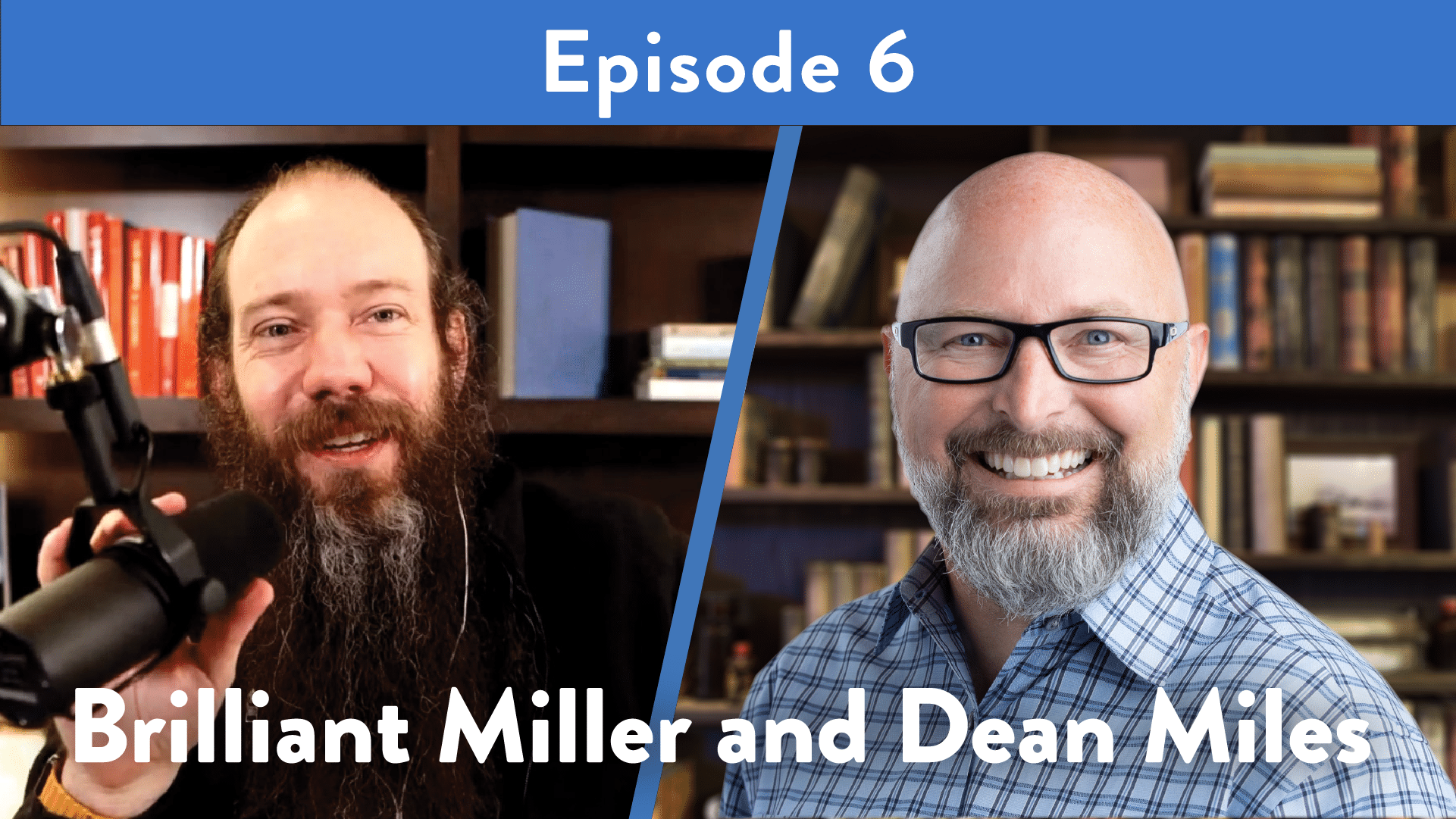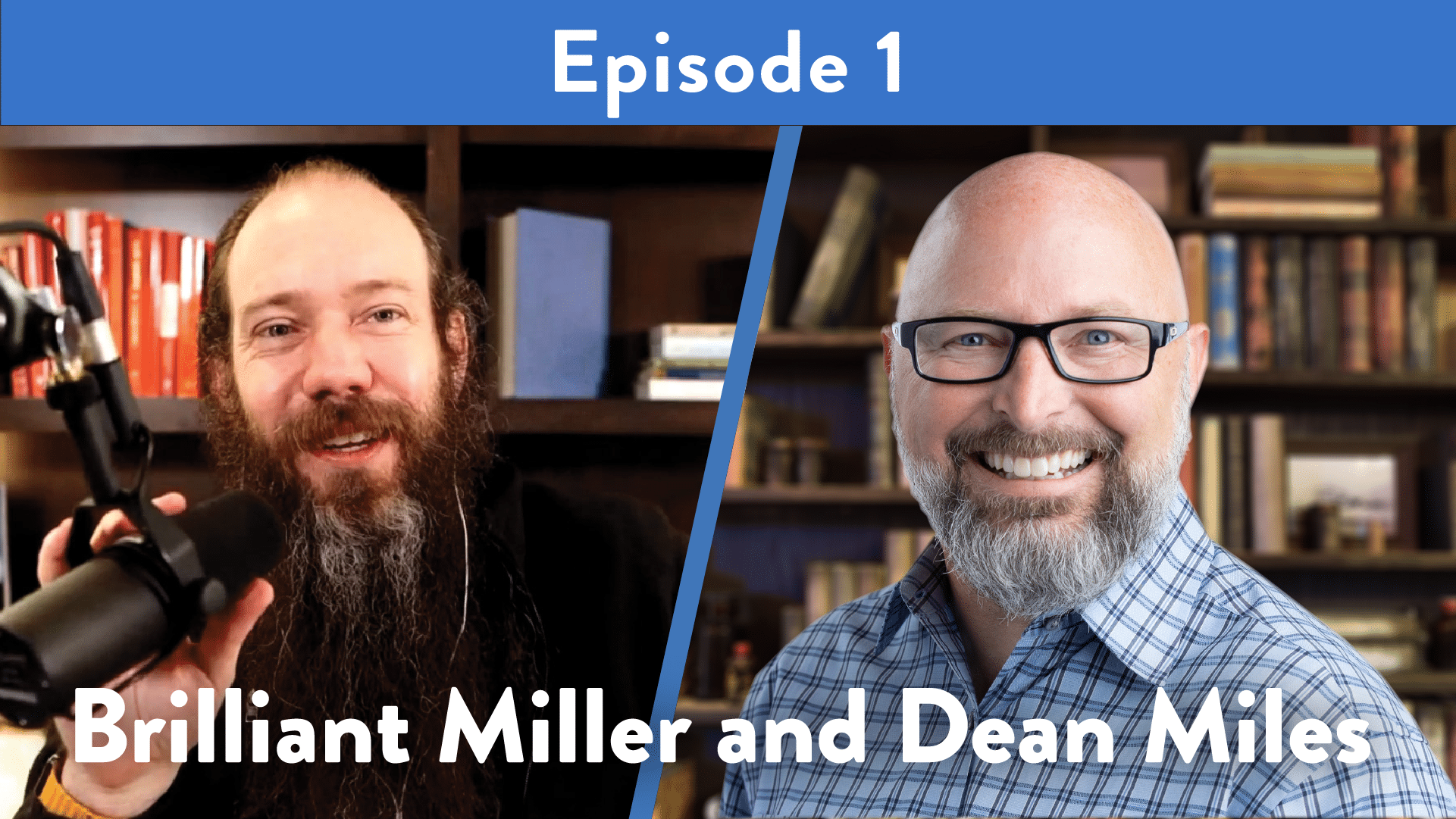Brilliant Miller [00:00:00] Dean, good to see you.
Dean Miles [00:00:02] Brilliant. Living in the flesh. Yes.
Brilliant Miller [00:00:06] Good to be together.
Dean Miles [00:00:07] It is indeed.
Brilliant Miller [00:00:09] So, coaches commonplace. Dean, what is this? What are we doing? Why we call it that?
Dean Miles [00:00:14] Yeah. Yeah. So you’re going to see somewhere on the bumper. You just watch as the starters are somewhere below here. Coaches commonplace. It’s a term that my wife introduced me to. It was a commonplace book. So in 1685, this game, this guy John Locke 0cke kind of created people, had a V kind of formalized of this is how you should organize this book. And so as the history goes, if you go into the late 1700s, much more common, more famous people, presidents and philosophers. Charles Darwin used this to capture a lot of his thoughts. But in a in a home or in a public place, you would just find this book in a common place. And it was a place to capture thoughts and jokes and proverbs and recipes and just all those things. But that’s where you would capture it. Cadence as we started, is it’s a written language. Right. Right. And so it was just a place to capture that. So as you and I were talking about your experience in life and your experience in coaching and how those two things come together, I’ve had the same experience. This is really we’ve created a common place now to capture some of that. And so even for for you that are watching this, really want this to be your commonplace book is in the comments section, things like that. We get to share those things and we all benefit. So that’s Where the the naming language came.
Brilliant Miller [00:01:49] From. Awesome. So let’s go to the to the wisdom of the pages. Right. But the idea is we read. We look at a magazine. We look at the cover. You find something that’s interesting to us and our listeners would benefit from. And then we as coaches see what we would say if we were tasked with writing that article or what we would say to a client that wanted our take on this topic. And then we read the article and then we’d say what they said, Are you mentally fit 31 ways to power up your brain. That was the question. You were the one that was given this assignment. What would you say about powering up his brain?
Dean Miles [00:02:26] So be curious. Test things through experience. Be aware of your senses. Specifically your is your site. Have a balance between science, art, logic and imagination. Embrace ambiguity, balance the body, and then recognize and appreciate. Appreciate that everything’s connected. Yeah. So, Evan Parks, Doctorate of Psychiatry. The six signs You’re lying to yourself. How to recognize when your confidence is covering up your self-deception.
Brilliant Miller [00:02:57] This is one that I actually think about a lot. You know, Was Michael Jordan a champion before he ever won a championship? And, you know, in a literal sense, no, he didn’t have you couldn’t look him up on Wikipedia to see how many. Back then, Wikipedia didn’t exist, but it wouldn’t have listed Champion. You know, there were no gold. There were no gold medals. There were no, you know, NBA Finals trophies. There was no a Hall of Fame induction. There was nothing to indicate there was no hardware to show that Michael Jordan was a champion. Put it another way, you could be darn sure that the story he was telling himself was that he was a champion. And it’s part of the persona that he embodied. It was what he lived in to us, what he proved to the world. Well, let’s let’s just shift to the last part of our conversation, exploring two things. One is something that can help us, you better coaches. And then one is what’s something that as coaches or as thought leaders that can help us earn recognition and money.
Dean Miles [00:03:55] Yeah. So my thought about being a good coach is it is make it as easy as possible to to get paid. And I find just in the business of coaching, we spend so much time learning the skill of coaching, so much time trying to find that client. And then when it’s time for them to pay us, we’re almost as awkward as that 12 year old or 13 year old boy or girl that’s babysitting for the first time. That doesn’t know how much they want to be paid or even how to pay their rent. Don’t be the 12 year, 12 year old version of yourself as you’re growing a coaching business, know what the prices and make it so easy for them to pay.
Dean Miles [00:04:44] Lisa McLeod.
Dean Miles [00:04:46] Who specialization is selling with a noble purpose, has done amazing things with large sales organizations. But she said if you’re doing good things, which I would imagine most of the coaches are listening to this are, then you have a moral obligation to let people know what you are able to do.









